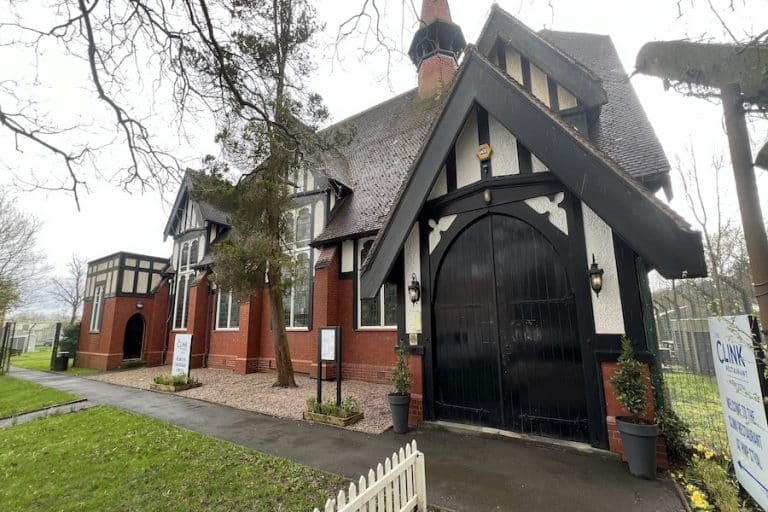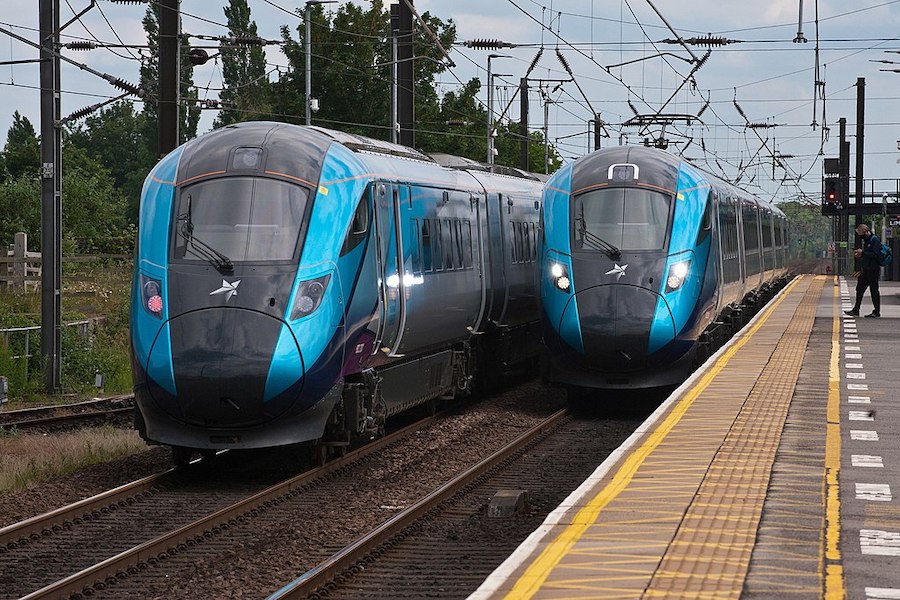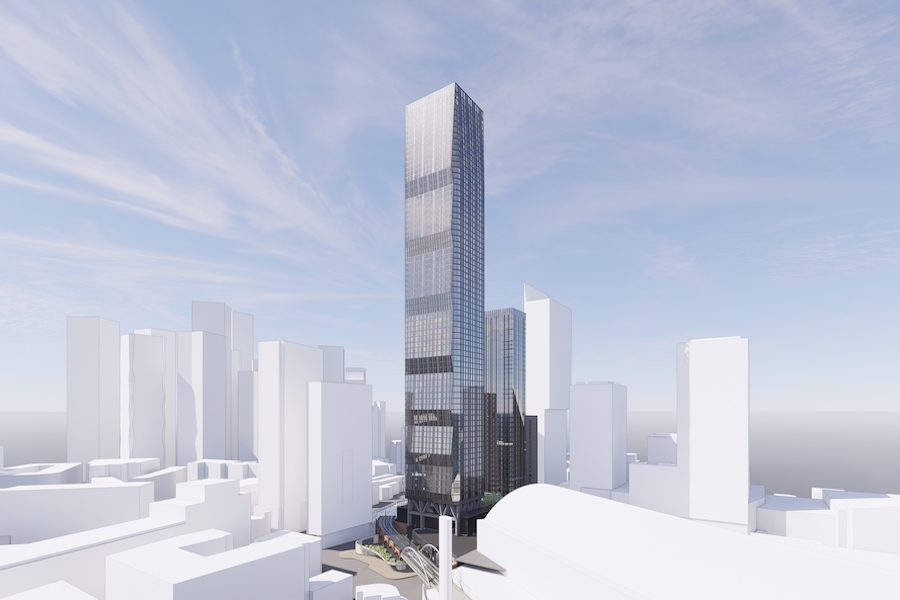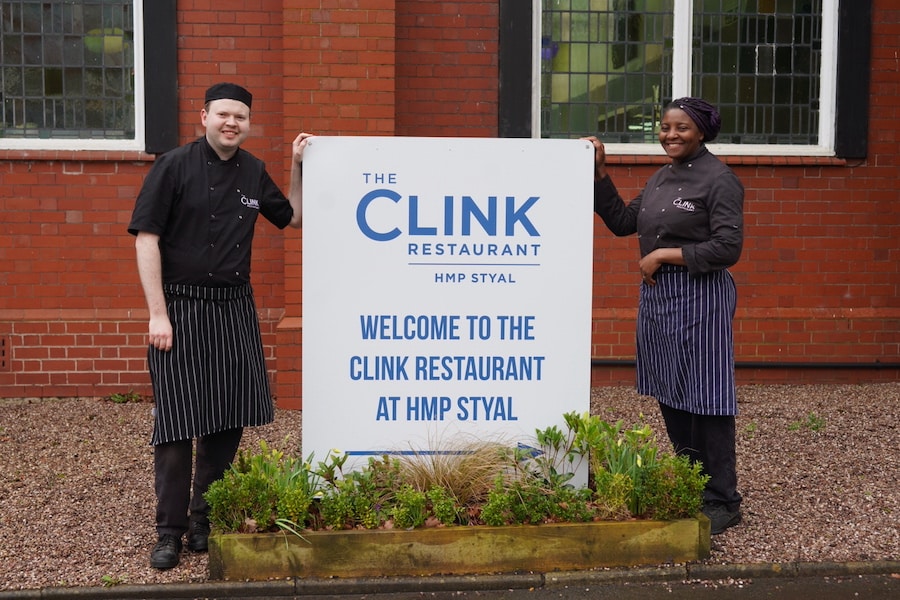Royal Exchange featured in new photo project showing empty theatres during lockdown
- Written by Louise Rhind-Tutt
- Last updated 5 years ago
- Culture, Theatre
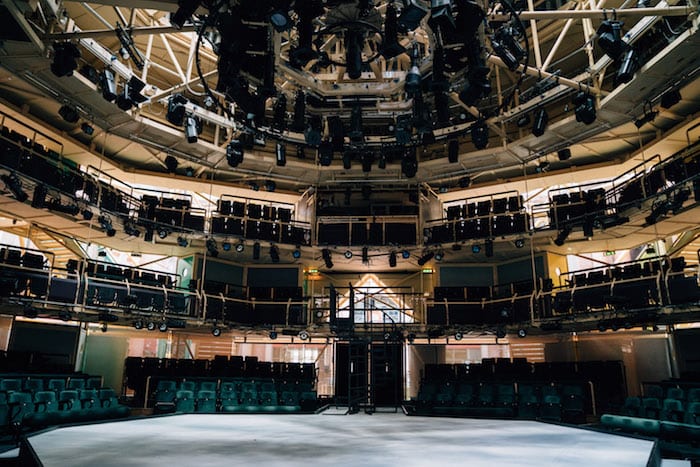
Still unable to open, theatres across the UK have fallen silent during lockdown, the usually bustling buildings eerily empty.
These empty theatre spaces provided the inspiration for photographer Helen Murray’s latest project, a photography story featuring 22 empty theatres and quotes from over 100 members of the UK’s theatre community, including Manchester’s Royal Exchange.
As part of the Our Empty Theatres project, Helen contacted those working in theatre from wig makers to designers, to writers to front of house staff asking them for their response to our empty theatres.
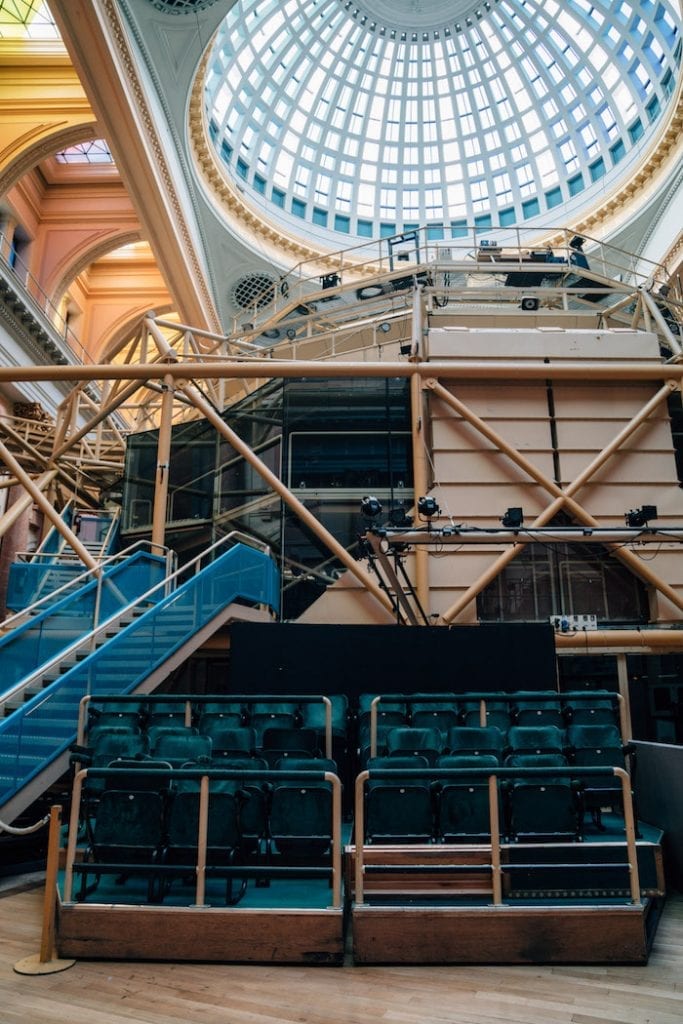
“Over the course of lockdown I set myself a challenge to create a project that responded to it but that also told a photographic story of its own,” says Helen.
“I kept coming back to our empty theatres – these spaces that were now without life, without people and without stories.
“Shooting this series has been sobering.
“Going back to into these spaces that I know so well and being met with total silence. No background noise, no chitter chatter, no infectious laughs bellowing out of a rehearsal room, just complete silence. The stark opposite of what they should be.
“In the forefront of my mind throughout shooting was what are these buildings are without all the glorious, wonderful, different kinds of people that inhabit them, from the army of freelancers to the permanent staff, to the ushers, box office, bookshop, stage door, café and bar staff, volunteers, community and audience members?
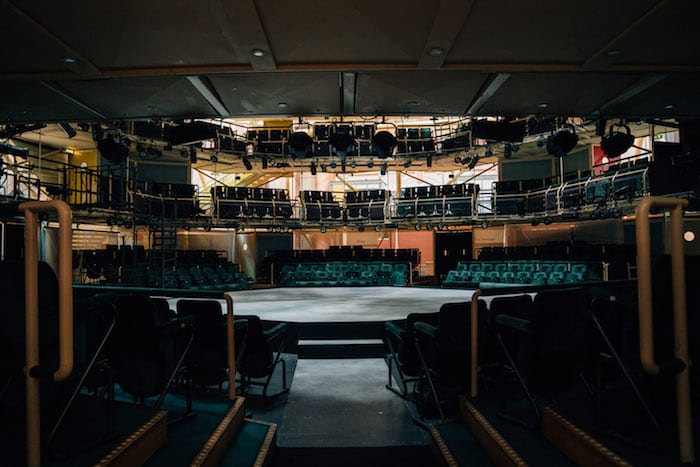
Staff and volunteers from the Royal Exchange theatre shared their thoughts on what the empty theatre space has meant to them during lockdown.
“Empty theatres mean silence,” says Kate O’Donnell, actor and artistic director of Trans Creative.
“As a trans theatre maker, activist and artistic director of Trans Creative our aim is to create space to tell our stories to raise visibility. If you can’t see yourself, you can’t be yourself.
“End the silence. End empty theatres.”
Pauline Walsh, a welcome desk volunteer at the theatre, says: “I feel like someone has snatched away part of my heart.”
Young company member Gloria Akpoke describes empty theatres as “bodies without a heart beat”.
“To me it means a place that once shared laughter, sadness, love and every emotion through story telling has now been silenced,” she says.
“An empty theatre is like creating a microphone and not letting anyone use it to sing. An empty theatre means we starve ourselves of stories that bring us comfort, magic, wisdom and unity. An empty theatre is everything it was never created to be. And that’s what an empty theatre means to me.”
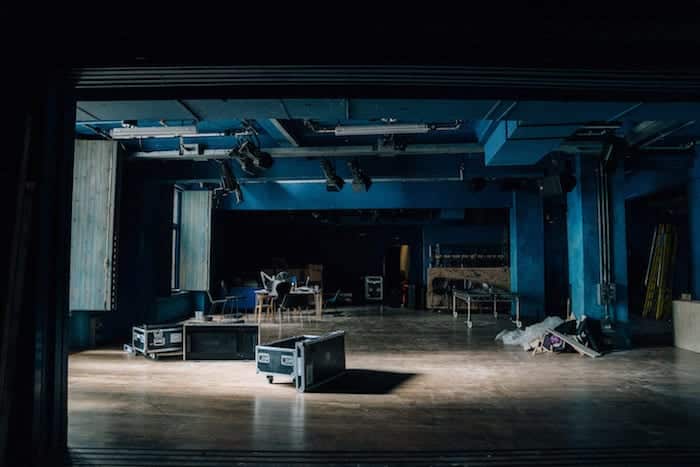
But though the images are unsettling, they also offer hope.
“Empty theatres mean no stories. No shared laughter, tears or surprises,” says director Nicola Miles-Wildin.
“But they give us time to think. To regroup. To reset and reimagine what our theatres are and who they are for.”
Writer Anna Jordan says she has “always felt a little scared of empty theatres. In the silence they can feel haunted, the echo of all the words spoken there before; on stage and off.
“But they’re hopeful places too – because of all the words that will be spoken in the future. A place of nostalgia and a place of anticipation.
“I can’t wait till they are full again.”
Writer James Graham agrees.
“These disquieting images of quiet theatres are vital in reminding us of what was the longest ever period of closure, creating the most serious existential threat, to one of the oldest human activities we have.
“What I feel most when I see these heart-stopping images isn’t sadness, strangely. What I feel overwhelmingly is hope. These spaces are waiting for us to return…”
As the theatre sector continues to face uncertainty, Helen says she hopes the series serves as a reminder of why we must fight to fill these buildings with the people that make them thrive and not forget those who have been underrepresented in the past.
“My photos are a love letter to not just the theatres themselves but to the people, artists and communities who give these buildings life,” she says.
The full series is available now on Helen’s website helenmurrayphotos.com.
- This article was last updated 5 years ago.
- It was first published on 23 July 2020 and is subject to be updated from time to time. Please refresh or return to see the latest version.
Did we miss something? Let us know: press@ilovemanchester.com
Want to be the first to receive all the latest news stories, what’s on and events from the heart of Manchester? Sign up here.
Manchester is a successful city, but many people suffer. I Love Manchester helps raise awareness and funds to help improve the lives and prospects of people across Greater Manchester – and we can’t do it without your help. So please support us with what you can so we can continue to spread the love. Thank you in advance!
An email you’ll love. Subscribe to our newsletter to get the latest news stories delivered direct to your inbox.
Got a story worth sharing?
What’s the story? We are all ears when it comes to positive news and inspiring stories. You can send story ideas to press@ilovemanchester.com
While we can’t guarantee to publish everything, we will always consider any enquiry or idea that promotes:
- Independent new openings
- Human interest
- Not-for-profit organisations
- Community Interest Companies (CiCs) and projects
- Charities and charitable initiatives
- Affordability and offers saving people over 20%
For anything else, don’t hesitate to get in touch with us about advertorials (from £350+VAT) and advertising opportunities: advertise@ilovemanchester.com
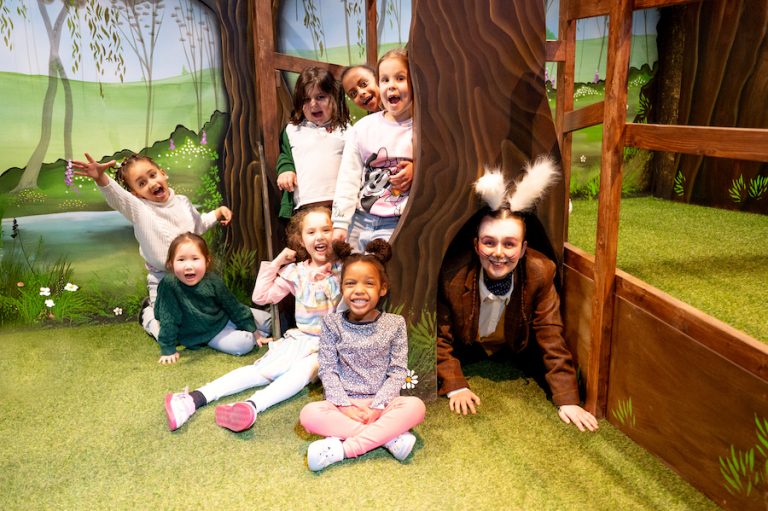
Head down the rabbit hole for Adventures in Wonderland with Z-arts

Major rail investment set to transform Manchester-Leeds commutes

“His presence will be deeply missed” Children’s hospice bids farewell to their visionary CEO

Has Gordon Ramsay created Manchester’s ultimate bottomless brunch?

The Clink celebrates ten years of empowerment and second chances
